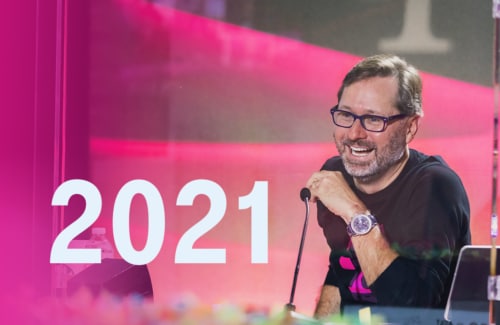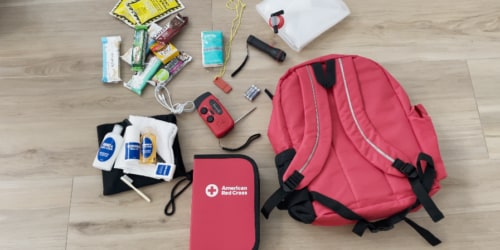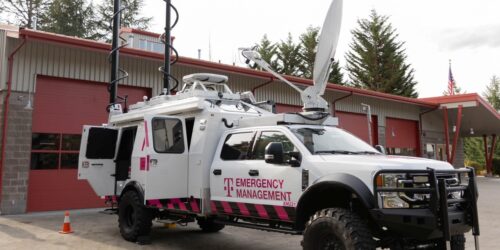I was reading a recent Washington Post article where people were asked to describe 2020 in one word or phrase. No surprises here: Exhausting. Chaotic. Relentless. Dumpster fire. Nightmare. You are on mute (I hear that one every day!) Others simply said Ugh. One called it the Year of Missing, and I found that description particularly relevant in so many ways. I don’t disagree with any of these sentiments, really. This year has had its share of immeasurable loss, hardships and turmoil. But just a little further down the list, some found a more positive perspective. Words like Transformative and Perseverance. Those are the themes I am grabbing onto and leaning into as I look to close the books on 2020.
Some will think I’m crazy for saying this, but there was a lot of positivity in 2020 that I don’t think we want to overlook. I am not dismissing the suffering, loss and pain that so many have felt — and that many are still feeling today. But instead of dwelling on it, I am making a choice to focus on the positive aspects of a year that will go down in history for every single one of us. This year more than ever, we all need a reminder that we CAN change our perspective. Yes it has been the Year of Missing, but it has also been the Year of Growth. The Year of Change. The Year of Learning. And that is what I’m taking straight into 2021.
Skeptical? Well, I bet I can contribute at least a little optimism to your outlook. Today I’m going to use this space to reflect a little on how we grew, learned and came together in 2020 — to remind you of some important wins — and maybe share a few goals and ideals I’m taking with me into the new year and beyond.
Anyone can be a hero.
The news was packed with political and celebrity names throughout the year, sprinkled in with some surprising new superstars (have you seen the Dr. Fauci bobblehead?). But more important are the people working behind the scenes who haven’t necessarily received the credit they’re due. You probably know who I’m talking about: frontline emergency response workers — doctors, nurses, public safety responders, teachers, food service workers, and of course, essential retail workers like T-Mobile’s own frontline heroes. Volunteers who helped get out the vote. Census workers. IT and network engineers who kept families and friends connected when they couldn’t be there physically. The list is long. Heroes, all, and they deserve to be recognized. They deserve our gratitude.
There were unexpected heroes, too. One who inspired me is Ensheng “Frank” Dong, a Johns Hopkins University grad student. Back in January, Frank heard about a virus that was impacting his home country of China. So when Lauren Gardner, an associate professor of civil and systems engineering at the university, suggested creating a dashboard, Frank realized he had a valuable skill to offer in tracking the virus. He scraped together data to help map the spread of COVID-19 into a rudimentary online dashboard.
The Johns Hopkins dashboard evolved into the go-to resource for many, including me. Now it also serves as a guide for estimating health system resources and state closure and reopening plans. And it was all started by a talented young man who jumped at the chance to make a difference. How many other unsung heroes helped us get through 2020? I don’t know, but I’m certain that Frank is not alone in his heroic efforts.
In 2021 I will find ways to explore and motivate others to find solutions that could evoke change. No matter how small.
It’s important to pause.
I never thought I’d spend weeks huddled around our dining table with my adult children working on a jigsaw puzzle. But I have during quarantine, and I’ll always cherish this extra time with them. Reconnecting with family has been a highlight of my year, and I’m not alone. One stat from a few months ago showed that more families of all economic levels are cooking meals at home and hanging out together more than before the pandemic. And nearly 80% of them reported family meals as the high point of their day.
I have also found myself calling friends and family more than I have in years — and the conversations have often made my week! Apparently I’m not alone on my reacquaintance with old-fashioned communication: T-Mobile found that the average time spent on a voice call has jumped more than 30 percent during the pandemic. It’s amazing how strong the connection can be when we hear each other’s voices or see each other’s faces. Don’t get me wrong, texts and emails still have an important role in communications, but they have not been good enough for me during the last nine months!
And there were even bigger benefits of this year’s temporary pause. Global reduction in human activity like daily car and domestic air travel led to temporary double-digit percentage declines in nitrogen dioxide and positive impacts on greenhouse gas emissions, along with water and noise pollution. I saw it with my own eyes — this summer the views of the Pacific Northwest’s beloved Mt. Rainier were out of this world!
This “anthropause,” as it was coined by scientists, also has allowed researchers to study the impacts of humans on wildlife. They’re able to collect animal-tracking data from before, during and after the lockdown to assess how changes in our activity levels have affected the movements and behavior of a wide range of marine, land-based and avian species. These learnings will have huge impacts on wildlife populations for years to come, potentially saving some species that are critically impacted by humans — all because we paused.
In 2021 I’m not going to lose sight of the benefits of slowing down and pausing at home, or out in the world.
The outdoors became great again.
This year people were outside — a lot. Over the past year, more and more people have been spending their time outdoors as indoor spaces faced restrictions and social distancing changed entertainment options. And this was a good thing.
In fact, a survey from July found that 94% of Americans said they were happier and healthier when spending time outdoors. No wonder why Seattle-based REI, one of the nation’s largest outdoor-gear retailers, saw increased interest in entry-level categories, suggesting that more people are discovering and prioritizing outdoor recreation. Bike sales are up 63% versus last year, camping 31%. Analysts are predicting one of the biggest winters on record for sales of skis, snowboards and the like.
I have to say that another highlight of this year for me was spending time on a camping trip with my adult kids and my wife, seeing the desert wilderness in a new way and breathing in fresh air. A change in our plans created amazing experiences and a whole new view of the world we live in.
In 2021 I’m going to opt outside even more. Any suggestions?
America benefitted when more of us participated.
With more than 160 million votes cast, this year’s presidential election saw the biggest voter turnout in U.S. history. Regardless of how you feel about the outcome, the astounding level of participation is a beautiful thing. The first step to making change is to want it, and by voting you express who you are and what you want for our country.
Speaking of making change, historians and activists alike are describing the social justice and racial equity movement of Black Lives Matter as the largest social movement in U.S. history. An estimated 15 million to 26 million people participated in mostly peaceful demonstrations sparked by the death of George Floyd, a man who was killed in May while being arrested by Minneapolis police officers. New leaders have been elected to local offices; the movement’s tenets of equity and inclusion have become ubiquitous within pop and corporate culture; and grassroots activism of all kinds has seen a surge of participation. If this year of crisis leads to a fairer, more sustainable future for all of us, then there is hope ahead.
In 2021 I’m going to find new opportunities to add my voice to issues that I believe truly matter.
Tech provided opportunity.
COVID has forced all sorts of new necessities on us, and smart businesses have evolved and tapped into tech to fulfill a need. As people were asked to stay home, for example, AirBnb invited them to virtually tour the world. Thanks to new virtual offerings and a quick pivot, you can meditate with Buddhist monks, visit the dogs of Chernobyl or learn about Moroccan cooking from a chef in Marrakech, all from a front-row seat in your living room.
Others in the tech world have kept pace through life-enhancing inventions. Online medicine, or telehealth, has been a huge asset in keeping people home even as they need to talk to a doctor. All sorts of innovations in the public health sector have arisen from this year’s response to the pandemic. Even Operation Warp Speed — the name of America’s rollout plan for the COVID vaccine — was possible only because of four vaccine-platform technologies that were developed for safety and effectiveness. Today we have two different vaccines for this virus, with more on the way. Something many thought could never be done in such a short time, but medical breakthroughs like this are often born out of necessity, and this was no different.
And at T-Mobile, we’re delivering the 5G reach, speeds and low latency that customers across the country need to stay connected, find medical help (even if they are far from a doctor) and keep cities safe. With America’s largest 5G network, we cover 270 million people in more than 8,300 cities and towns across 1.4 million square miles (that’s more than AT&T and Verizon combined, by the way!).
Ericsson reports that by the end of 2020, there will be about 220 million 5G connections around the world, with 3.5 billion forecast by the end of 2026! We can anticipate even faster and more responsive robots, autonomous vehicles and new apps that forever change the way we live — in even more transformational ways than 4G did with apps like Uber, Google Maps and Snapchat. Despite the ups and downs of 2020, it was the true beginning of the 5G era — and T-Mobile will not slow down in our pursuit to be the best in the world at connecting people to their world.
In 2021 I’m going to challenge the innovators in this world to truly take advantage of the power of 5G.
Survival led to innovation.
By innovating, we are forced to learn in new ways. I think the restaurant industry is an excellent example of one that pivoted very quickly this year. Out of an estimated 660,775 restaurants in America, the National Restaurant Association estimates that about 110,000 have closed either permanently or long term since March. But those that remain open are hardy survivors and creative thinkers, and now they’re leading the way forward with outdoor dining innovations, takeout menus and delivery, customized menus, elaborate to-go cocktails, CSA partnerships with farms and more.
Local Seattle favorite Canlis was over-the-top creative with its offerings, including a parking lot crab shack complete with sand, a bagel shed and even a full-scale “community college” with online food and wine classes, field trips, intramural sports and a shop stuffed with Canlis-themed collegiate wear. And, by the way, the focus on the customer NEVER changed. It was all about the experience and service.
This year I plan to keep learning from those who were forced to change — and find ways to infuse creativity and flexibility into how we serve our customers and communities.
We worked from anywhere and everywhere.
Many Americans changed the way they work this year. We had to. For us at T-Mobile, it was a massive effort at the beginning of the pandemic to transition all our back office to working from home, to move over 12,000 care experts out of our call centers and into their homes in less than a month, to train and equip our sales teams to safely support customers in retail, and to keep our technical teams safe and healthy as they work in the field to continue deploying our mission-critical 5G network. We thought it was for a few months. We thought wrong. And we weren’t alone.
By 2025, a predicted 36.2 million Americans will be working remotely — an 87% increase from pre-pandemic levels. Clearly the workforce is proving that flexibility, availability and responsiveness are possible beyond the office walls. While I look forward to working in our offices with my colleagues again, I know we will have a highly productive hybrid workforce in the future. I have become a believer in home/office hybrid work — something I didn’t see coming just a year ago. I think it all starts by establishing clear communication strategies, empowering employees to own their work processes, and letting them follow through and deliver. Technology can be the catalyst for this change, and it has been all year long.
In 2021, employers of all sizes will want to ensure their teams are tapping into 5G reach and speeds for videoconferencing, software solutions and collaboration tools. I envision an explosion of work-from-anywhere tools that take digital whiteboards and video calls to the next level!
Negative thoughts can be what we take away from 2020, but know that we all benefit when we think of the unexpected examples of resilience we witnessed or contributed to.
THANK YOU to so many people across the country and around the world who worked tirelessly all year long to adjust, learn, survive and thrive during a year that none of us could have predicted. You continue to inspire me.
As we head into 2021, I’m confident that we each have what it takes to transform, persevere and stay positive.
Here’s to a brighter year ahead. Stay safe, stay healthy and Happy New Year! Let’s make 2021 a GREAT one!




